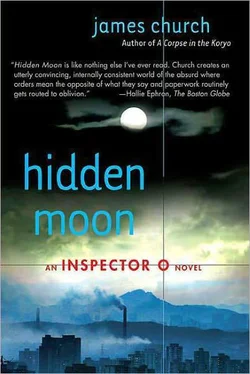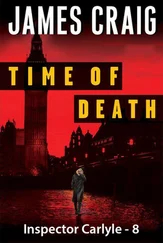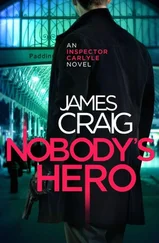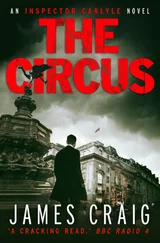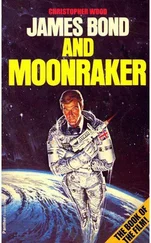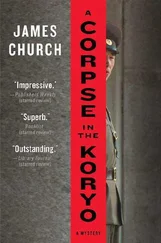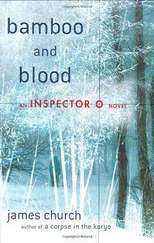James Church - Hidden Moon
Здесь есть возможность читать онлайн «James Church - Hidden Moon» весь текст электронной книги совершенно бесплатно (целиком полную версию без сокращений). В некоторых случаях можно слушать аудио, скачать через торрент в формате fb2 и присутствует краткое содержание. Жанр: Полицейский детектив, на английском языке. Описание произведения, (предисловие) а так же отзывы посетителей доступны на портале библиотеки ЛибКат.
- Название:Hidden Moon
- Автор:
- Жанр:
- Год:неизвестен
- ISBN:нет данных
- Рейтинг книги:3 / 5. Голосов: 1
-
Избранное:Добавить в избранное
- Отзывы:
-
Ваша оценка:
- 60
- 1
- 2
- 3
- 4
- 5
Hidden Moon: краткое содержание, описание и аннотация
Предлагаем к чтению аннотацию, описание, краткое содержание или предисловие (зависит от того, что написал сам автор книги «Hidden Moon»). Если вы не нашли необходимую информацию о книге — напишите в комментариях, мы постараемся отыскать её.
Hidden Moon — читать онлайн бесплатно полную книгу (весь текст) целиком
Ниже представлен текст книги, разбитый по страницам. Система сохранения места последней прочитанной страницы, позволяет с удобством читать онлайн бесплатно книгу «Hidden Moon», без необходимости каждый раз заново искать на чём Вы остановились. Поставьте закладку, и сможете в любой момент перейти на страницу, на которой закончили чтение.
Интервал:
Закладка:
One of Min’s central beliefs-where it came from, he probably did not know-was that it was proper and necessary for “power” to be seated. He never paced around his own desk. Whatever people might think of him personally, he used to remind me, he was a chief inspector, and chief inspector bottoms belonged on chairs when the job called for addressing subordinates. Min was a smart man, he was cautious, and he preferred to sit.
There was a moment of serenity while I waited at the edge of his office. It was pleasant to lounge against the door frame, looking beyond Min and out the window that overlooked the courtyard separating our offices from the Operations Building. The two tall gingko trees in the corner had no leaves yet, but the tips of their branches were supple with promise. Pak had loved those trees. He had waited eagerly through each dreary winter to see them come alive in spring. Every October, he would stare out the window for long, quiet minutes. It was sweet mourning, he said, the way the leaves turned gold in the dying sun. One summer, the Ministry had sent two workmen over to cut the trees down. Pak demanded to see the orders, which said something about how the branches were scraping the sides of the building and the roots would make it difficult to lay pipes between the buildings-as if any pipes would ever be laid. Pak gave the workmen five US dollars each, signed the work order on the “completed as instructed” line, and told them not to come around anymore. Min, by contrast, paid no attention to the courtyard trees; he said he’d seen enough wood during his army days to last a lifetime.
When he realized I was standing at his door, Min sat up and looked at me uneasily, as if surprised to find me there. “Eh, Inspector,” he said at last, “thank you for coming.”
No matter we had seen each other less than two minutes before, or that he had just called me to his office. He liked to begin these sessions this way, with a certain practiced formality. I nodded. It did no harm to play along with these rituals, because in truth, Min had no hold over me. On paper, even on the creased, outdated organization chart that hung on the wall beside his desk, he was my superior. But we both realized that on what really counted, the advantage was mine. I had longer service in the Ministry and understood things about its scuffed corridors that he did not. He needed me; I didn’t need him. Reduced to brutally simple terms, if I retired, he would be assigned one of the new breed of police inspectors-total recall of new regulations, very concerned with promotion, little experience, and no sense. This, Chief Inspector Min did not want.
“I was serious about the robbery.” Min opened a folder and pretended to read. “It happened Wednesday before last, about noon. Why the duty officer didn’t bother to look in the daily file and alert you, I’ll never know.” From the way he squinted, it was clear he was skipping over details he didn’t want to tell me. It was equally clear he was not telling me the truth. There had been nothing in the duty file about a bank robbery. But he knew that I knew he was lying, so it didn’t bother me. He was trying to get to the point, and the best way there happened to be through a minor bending of fact. “The Gold Star Bank. They used to deal in foreign investment, illegal currency swaps, funding overseas operations.” He looked up to make sure I was listening. “Last year, they saw which way the wind was blowing with all of this talk about new economic realities, so they set up a section for domestic customers-savings accounts for merchants who will stand in line for hours to deposit the week’s profits. Some of the local foreign businessmen opened euro accounts rather than keep stacks of cash in their hotel rooms. Nothing was insured. Why bother? Who ever thought a bank would be robbed in safe, gray Pyongyang.”
In a heartbeat, I knew we didn’t want to get saddled with this case. The lack of entry in the duty log could have been an oversight. But if everything else Min had said so far was true, the Ministry wasn’t remotely interested in a solution as such; they wanted a political problem solved for political reasons, having to do with the current tides in the capital. Ocean tides were reliable and predictable, pretty much a function of the moon. Political tides were more complicated, and usually more dangerous.
Convincing Min to throw the case in the bottom drawer and forget about it would be difficult, but nothing was impossible; well, not this, anyway. The Ministry could be pacified eventually, and all would be well in our little sector of the world. “Yes, good question,” I said. “Who would have thought there would be a bank robbery in the capital?”
“Someone obviously did, Inspector.” Min closed the folder as if it were a precious old book and laid his hand atop it, to keep the facts from flying out. “Somebody thought about it, they planned it, and then they executed it. In broad daylight. In your district, I might add, with silk stockings over their faces. That must have been a sight. Witnesses say they sounded like Koreans but not from Pyongyang. Some in the Ministry apparently think they might have been Chagang people. It’s possible, I suppose, though I don’t think there is anyone in Chagang smart enough to conceive something like this. You haven’t heard a peep from your contacts?”
Min was Pyongyang born and bred. He thought this one of the luckiest things in his life, being born in Pyongyang, and seemed prouder of that than of being a chief inspector. Not surprisingly, he had a low opinion of anyone from the provinces, even if they outranked him. If he had to, he could leash his contempt. I’d seen him do it more than once with the Ministry’s senior party secretary, a wiry, bad-tempered man from North Hamgyong-the only place Min considered even more backward than Chagang. During army service, Min had been stationed in the mountains of Chagang. He was tight-lipped about what he did, but he made it plain the place hadn’t rubbed him the right way. He never had a good thing to say about it, or anyone he met there. Whenever we had a few drinks, he made especially unflattering comments about Chagang women.
I didn’t care where people thought the robbers were from; in fact, the last thing I wanted was a discussion of the suspects. “My contacts are relaxing in the sweetness of the season, those able to buy their way out of going down to help the farmers for a few weeks.” This was where I needed to plant a seed of doubt in Min’s mind. “I have to say, already something about this case smells funny to me. This robbery-if that is what it was-happened over a week ago. There was nothing in the duty file”-I watched, but Min’s face didn’t change expression-“so why is the Ministry only getting around today to asking us to begin an investigation? By now, the people in those stockings could be anywhere. It seems to me that this isn’t going to get solved, not at our level, and we would be doing ourselves a big favor to let it expire from inattention.”
“Could be; the suspects could be anywhere, as you say.” I had a momentary surge of optimism that we were about to drop the whole thing. “But in fact”-Min’s eyes darted into the hallway, then slid back to me tinged with conspiracy-“one of them isn’t. Keep this to yourself, Inspector. He’s not just anywhere, he’s somewhere specific, by which I mean, specifically in the morgue.”
“This is a secret?” It was painfully clear that Min was not going to let go of this as easily as I’d hoped. There was more to it than he’d first let on. If the bastards had all vanished without a trace, skipped back to wherever they were from, it would have been one thing. But now it appeared we had a body, and that would complicate matters. When there was a body, there was liable to be paperwork, and if there was paperwork, boxes would have to be checked.
Читать дальшеИнтервал:
Закладка:
Похожие книги на «Hidden Moon»
Представляем Вашему вниманию похожие книги на «Hidden Moon» списком для выбора. Мы отобрали схожую по названию и смыслу литературу в надежде предоставить читателям больше вариантов отыскать новые, интересные, ещё непрочитанные произведения.
Обсуждение, отзывы о книге «Hidden Moon» и просто собственные мнения читателей. Оставьте ваши комментарии, напишите, что Вы думаете о произведении, его смысле или главных героях. Укажите что конкретно понравилось, а что нет, и почему Вы так считаете.
